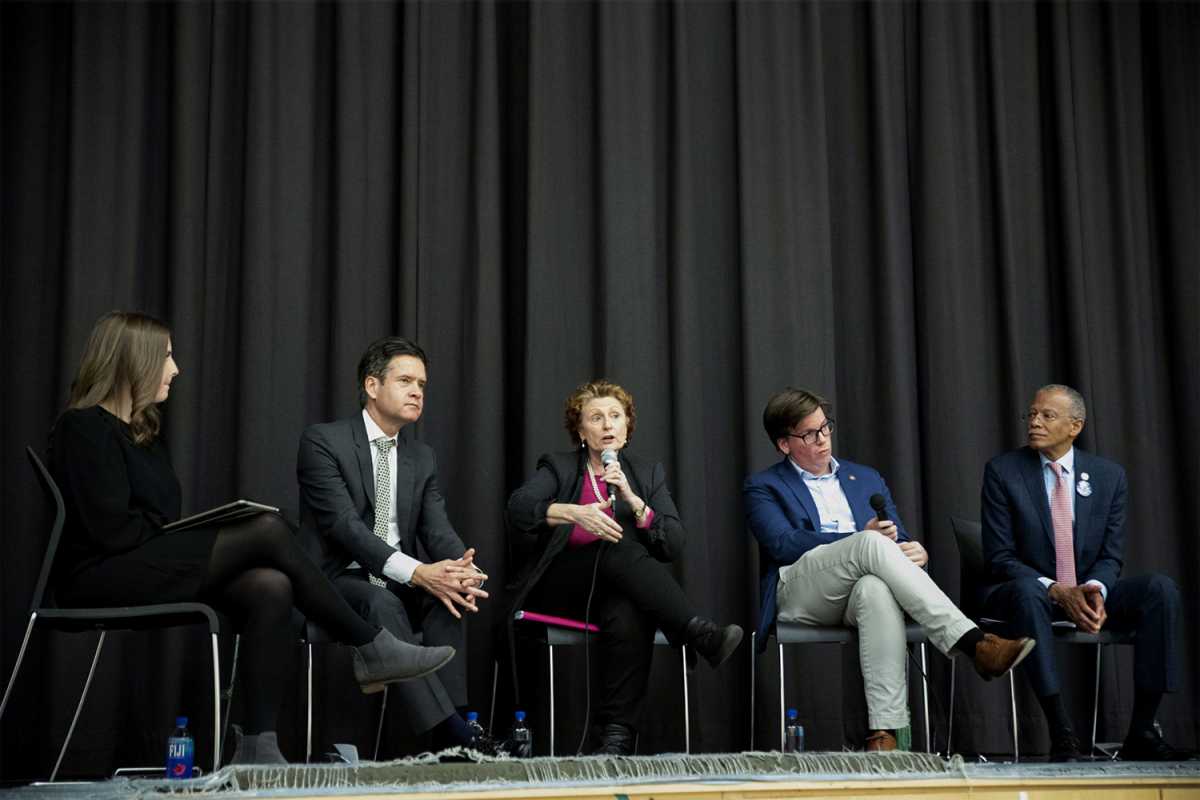A broad group of Manhattan electeds came together earlier this week to shine the spotlight on a group that the City is leaving behind: dyslexic students.
Assemblymembers Jo Anne Simon (D-Brooklyn) and Robert C. Carroll (D-Brooklyn), and State Senators Robert Jackson (D-West Manhattan) and Brad Hoylman (D-Greenwich Village) attended a panel on the subject last Monday. The panel was moderated by Danielle Scorrano, research coordinator at the Windward Institute and host of READ Podcast, at the Clinton School on March 9.
Some of the panelists highlighted the importance of early screening for dyslexia in schools and how
much it can change to have a special reading curriculum for dyslexic kids. Panelists explained how different responsibilities would fall on the Board of Education, school districts and teachers to ensure that all students are getting the help they need. The event also featured testimony from parents who have experience raising dyslexic children.

Meanwhile, the lawmakers in attendance discussed a package of bills that they’re sponsoring to address the issue. The bills were focused on four general areas: screening, intervention, higher education and testing.
Screening included legislation that would require early screening for dyslexia for all children and screening for people who are incarcerated.
“Schools do not want to do screening,” said Simon. “Because if they find kids at risk, then they have to do something about it. And they don’t have the teaching force to do that.”
For intervention, Carroll and Hoylman sponsored a bill to establish a dyslexia task force, as well as a bill proposal to establish schools dedicated to teaching dyslexic students in certain school districts.
For higher education, Simon sponsored a bill to require all literacy classes for teachers to include a structured multisensory approach. On the subject of testing, Carroll and Jackson sponsored a bill that would abolish time limitations for standardized tests and examinations.
“It’s crazy that New York City public schools don’t have a set reading curriculum,” Carroll said.
Carroll went on to explain that schools create their own reading curriculums, which are often based on theories rather than evidence. He shared his experience as a dyslexic kid, and said that he was
one of the lucky kids who was able to get the right help.
“If things were slightly different, I wouldn’t be sitting here,” said Carroll.
Jackson, who had previously sued the state over its funding for New York City schools, focused
on the advocating side of the issue. He advised the crowd to reach out to their elected officials and candidates about the issue.
“New York City has the money to address this, it is about priority,” said Jackson. “You
need to make sure that you ask them what they are going to do about children with dyslexia.”








